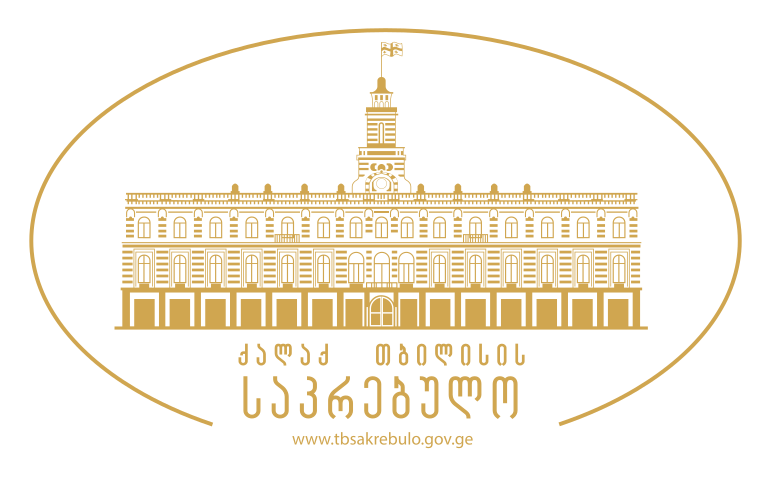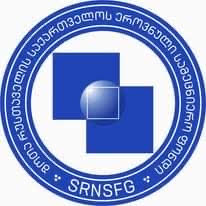Words and Images crossing literary and critical borders
- Adelaide M Russo - The Changing Forms of Discourse
- Ana Palagashvili - An Existential Interpretation of Shakespeare’s The Tempest in W.H. Auden’s The Sea and the Mirror
- Ananya Dutta -Reading ‘Difference’ in the Fiction about Partition of Bengal (1947) in Bangla and English: A Comparative Study
- Angela Kölling - The Postcolonial Chick Lit Industry: Crossing literary and critical borders through translation
- Azza Ahmed Heikal - Memoires over The Nile A Comparative Study of the Narrative Place Representation in Naguib Mahfouz’s Murmurs over the Nile and Taha Hussein’s Diaries
- Beata Waligórska-Olejniczak - The category of the underground in the selected films of Andrey Zvyagintsev
- Cagdas Duman, Imke van Heerden, Anil Bas - Android Actors and Artificial Authors: Re-Imagining Theatre in the Algorithmic Age
- Christiane Kazue NAGAO - Resistance, deaths and ideals in an Argentinian graphic novel Christiane Kazue Nagao
- Chutong Wang - In Her Own Words: The Image of Ice, Snow and Glass in A. S. Byatt’s Possession
- Davide Carnevale - «A GHASTLY AND INAPPROPRIATE SPLENDOUR»: THE FANTASTIC IN DINO BATTAGLIA’S COMIC ADAPTATIONS
- DOKHTOURICHVILI -Les écrivains « archéologues » de la mémoire en quête de l’identité
(Patrick Modiano, Jean-Luc Coatalem) - Dorothy Wai Yi Wong - Spectrality and its Translatability: Filmic Adaptation and the narrative of the Leftover Space
- Dusan Radunovic - Vernacular Visions:Primitivism and the Imagination of Nature in early-Soviet Georgian Avant-garde (With Reference to the Legacy of Davit Kakabadze)
- Emel Aras - AN ECOLOGICAL READINGON LATIFE TEKIN'S "ORMANDA ÖLÜM YOKMUŞ"
- Emel Aras -DO POSTHUMANIST CONDITIONS FICTIONALIZE A NEW COLLECTIVITY?
- Emel Aras -THE SITUATION OF LITERARY CRITICISM IN THE POST CRITIQUE PERIOD
- Fatima Zahra Ajjoul - Arabic Literature: Challenges for Translation
- Francisco Carlos Martins Anjo Dinis Marques - Archipelagic Thought and Comparativism: a critical approach to common problems
- GAO BO (China) - The Choice between Dragon and Snake: the Chinese Royal Image and its cultural metaphor in the XVI Century’s Europe
- Gassin Caen - Le tableau nabokovien comme espace de (faux) accomplissement de soi
- Geoffrey Roberts -Stalin and Comparative Literature
- Hermann Wittenberg -Through the Lens: the photographic imagination of J.M. Coetzee
- Hongzhang Wang -Approaching Cultural Cross-Fertilization Between China and the West
- Isabelle de Vendeuvre - « The Sea and Seafarers : looking at the literatures of the world from a maritime perspective »
- Ivan Humberto Jimenez Williams - Decoding and Encoding from Printed Page to Screen.
- Ivane Amirkhanashvili - Topoi in Old Georgian Prose
- JAHFAR SADIQ P - Words Crossing Literary Borders: A Critical Investigation of Tarjama Tradition in Kerala, India.
- Ji Zhifan - From Stagnation to Depression: The Conceptual Construction of yiyu in China
- Jingyu Zhang - The self-referential of comics: Graphic Narrative and metanarrative in Eleanor Davis’s Why Art?
- JINSONG WANG - The vision of the landscape in Juan Rulfo: The aesthetic worldview in literature and photography
- Julieta Gabodze - Album – chronicle of the epoch - Foreign language records of Vakhtang Gambashidze’s Album
- Kai Mikkonen and Jean Braithwaite - Through Word or Image: How Figural Iconic Solidarity Builds Characters and Drives Narrativity in Comics
- Ketevan Elashvili - The artistic range of "Dancing Snake"
- Ketevan Jmukhadze - Framing the Center: Bed as a Liminal Space in James Joyce’s Ulysses
- Ketevan Khokhiashvili - McMurphy as a Fighter Against The Totalitarian System in Ken Kesey’s Novel “One Flew Over the Cuckoo’s Nest
- Ketevan Sikharulidze - Ballads about brothers’ rivalry
- Konrad Gunesch - An Argument for Academic and Educational Attention to Popular Fiction Novels with Multilingual Content, Cultural Diversity, Sociopolitical Depth, and Inspirational Value
- Leena Eilittä - The re-creations of the Golem legend
- Liliana Gogichaishcili - T.S Eliot’s Early Poetry and John Donne’s “Metaphysical” Poetics
- Lizi Dzagnidze - Theoretical Relation of English Modernism to the Enlightenment of Jean-Jacques Rousseau
- Lúcia Bentes- Eccentric Artists and Their Constructions of Reality in Recent German Literature
- Maia Jaliashvili - Variation of Classic Paradigm in New Context
- Manana Gelashvili - Postmodern variations on Homer’s Odyssey by Margaret Atwood and John Barth
- Maria Petrova Chalukova (Japan) - Behind The Father Figure: A Closer Look at Fyodor M. Dostoevsky’s The Adolescent and Natsume Soseki’s Sanshirō
- Marie-Anne Hansen-Pauly - Nomadic translingual writing. The examples of Pierre Joris and Liliane Welch, two wandering poets from Luxembourg
- Martinelli Hélène - Pour une (histoire de la) littérature mondiale en images
- DILWAR HOSSAIN - 'Bella Ciao' and Beyond: Re-imagining the Peasant Movement of Bengal through the Cross-border Folksongs and Literature in 1940s
- Merab Ghaghanidze(Georgia) - Archpriest Pkhakadze – the Disciple of the Grand Inquisitor:
Apocalypse, Power and Religion in the Short Story The Drought by Aleksandre Kutateli - Michèle Kahan - L’espace de la cuisine dans l’imagerie publicitaire et dans l’imaginaire romanesque d’écrivains et d’écrivaines contemporaines.
- Nagaratna Parande (India) - Sufism and Vachana Literature
- Natalia Tuliakova (Finland) - The Virgin Mary coming to life: a motif in 19th century literature
- Neil van Heerden (South Africa) - Internationalisation of crime and the transnational turn in South African crime fiction with specific reference to the crime thrillers of Deon Meyer
- Nino Ghambashidze (Georgia) - Representations of Traditions Against Infectious Diseases in the Texts of the Nineteenth Century Georgian Writers and the Epoch Socio-Political Context
- Nino KAVATARDZE (Georgia) - Pour la réception des toponymes dans les textes littéraires
- Nino Tchintcharauli (Georgia) - Musicalization of James Joyce’s “Ulysses” Eleventh Episode
- Paata Chkheidze (Georgia) - The Types of Heroes in the Medieval Anglo-Saxon Epic and Georgian Mythological Tales
- Petr (USA) - Reimagining Literary Classics at Moscow Institute of Philosophy, Literature, and History (1931-1941)
- Rachel Esteves Lima (Brasil) - Interlocutions littéraires au sein des BRICS : efforts pour la construction d’une mondialisation anti-hégémonique dans quelques œuvres de la littérature brésilienne contemporaine
- Rostom Chkheidze (Georgia) - Why should a young person read Ulysses?
- Rūta Brūzgienė (Lithuania) - Musicality of Lithuanian Poetry: Codes of a Different Speaking
- Sama Almudarra (Saudi Arabia) - Littérature et ballet au XIXe sicèle
- Shreya Datta - Is There Any Pandemic Literature? Reading Literatures Published in Bangla During the Period of Covid 19.
- Siddiqua Fatima - Inter-literary Influence: Goethe in Iqbal
- SLAVICA SRBINOVSKA (North Macedonia) - BETWEEN THE CULTURES
- Stefania Irene Sini (Italy) - Words and images according to the Russian Formalism and its surroundings
- Takeshi Arthur Thornton (Japan) - Pandemics and Monsters: The Historical Origins and Modern Manifestations of the Amabie Legend
- Tamar Gelashvili (Georgia) - Various modes of multilingualism in Finnegans Wake by James Joyce and Bend Sinister by Vladimir Nabokov
- Tamar Khetashvili (Georgia)Analyse comparée des images aquatiques chez M. Yourcenar et Othar Tchiladzé (Mémoires d’Hadrien/Théâtre de Fer)
- Tamar Tsitsishvili (Georgia) - Representations of Traditions Against Infectious Diseases in the Texts of the Nineteenth Century Georgian Writers and the Epoch Socio-Political Context
- Tatjana Aleksic - We are in it Together: Family, Body and Truth in Post-Yugoslav Films of Crime Revelation
- Teiko Nakamaru (Japan) - Re-Imagining ‘A Story of Denmark’: A Comparison between Uchimura Kanzō’s ‘A Story of Denmark’ and Henry Leach’s ‘Reclaiming the Heath’ from the Perspective of the Nordic Reception
- Temur Kobakhize (Georgia) - Paradoxes and Absurdity as a Means of Expression in Joseph Conrad’s Heart of Darkness
- Tinatin Bolkvadze (Georgia) - Structure of Shota Rustaveli’s stanza
- Krystyna Wieszczek - British Literature Crossing the East-West border: Images from Soviet-Dominated Poland
- Xingtong Zhou - The Affective Pleasure in/of the Photobiography: Gazes and Mental Images in Roland Barthes and Eileen Chang
- YASUNAAGA Ai (Japan)- Adaptation du « Cimetière marin » de Paul Valéry au Japon:Le vent se lève de Hori Tatsuo et de Miyazaki Hayao
- Yixin Xu (USA) - Metaphors of Illness: An Analysis on The River and The Hole
- Yoonus Kozhisseri - The Vernacular Dissemination of the Fantastic in the Persianate Cosmopolis: The Case of Badr al-Munīr
- Younes EL Yousfi - Arabic Literature: Challenges for Translation
- Zaza Abzianidze (Georgia) - Literature as an Alternative History (Post-soviet conflicts in Georgian prose)
- Zhuo Li (China) - The Image of China through British Newspapers in Early 20th Century
- Carlo Caccia - Re-Beginning a sur-rationalist literary criticism. Gaston Bachelard’s spectres in Edward Said humanistic philology
- Jakob Henry Leveton -Song as Site of Ecology Glossolalia and Unspeakable Hope in Sigur Ros's
პროექტი განხორციელდა შოთა რუსთაველის საქართველოს ეროვნული სამეცნიერო ფონდის მხარდაჭერით [გრანტის ნომერი MG-ISE-22-170]
The Project was supported by Shota Rustaveli National Science Foundation of Georgia (SRNSFG) [grant number MG-ISE-22-170]
The Project was supported by Shota Rustaveli National Science Foundation of Georgia (SRNSFG) [grant number MG-ISE-22-170]


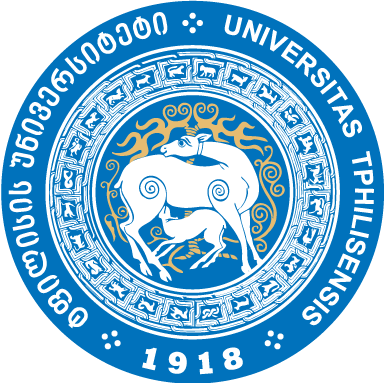

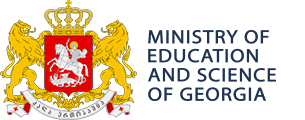
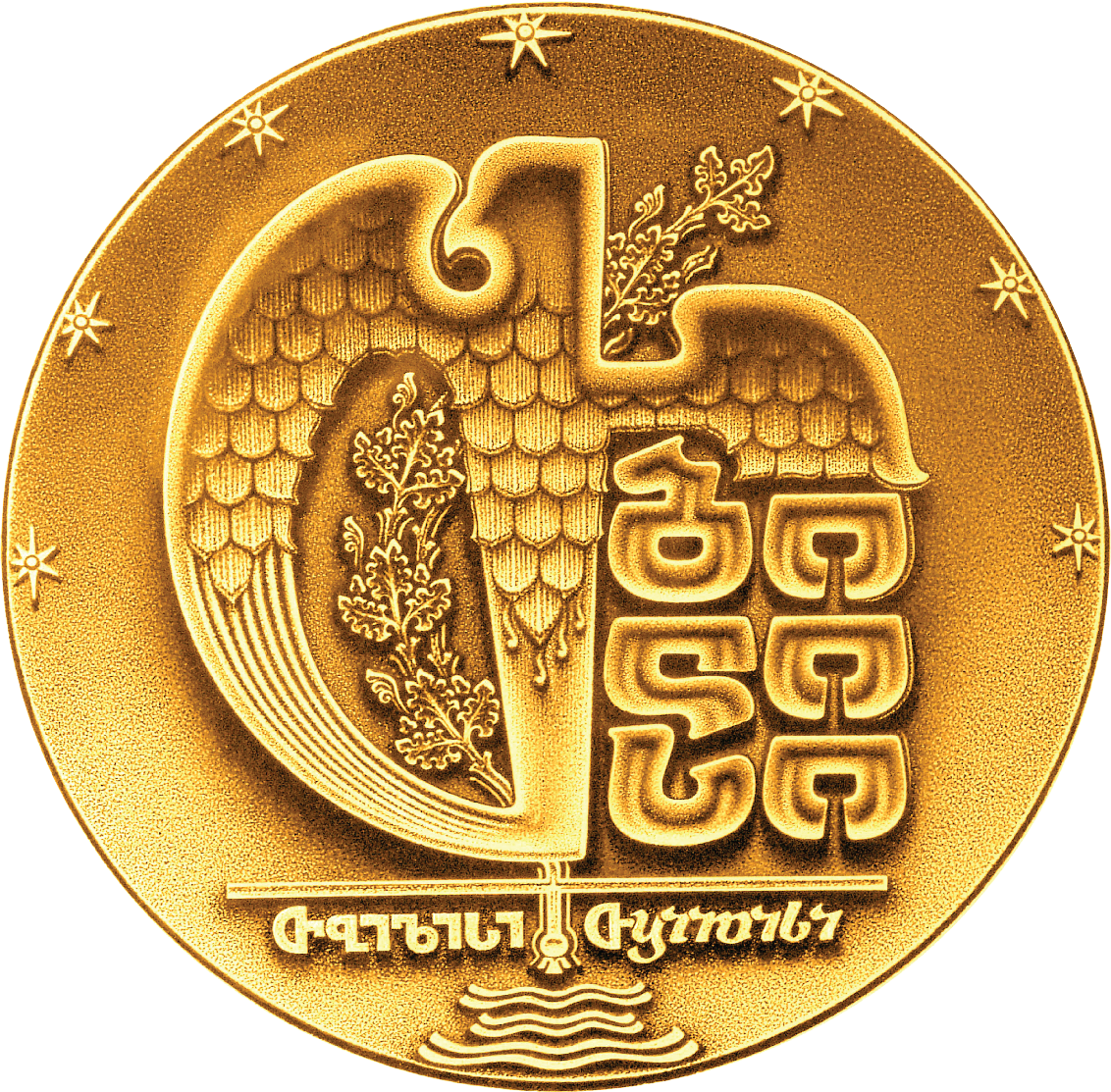

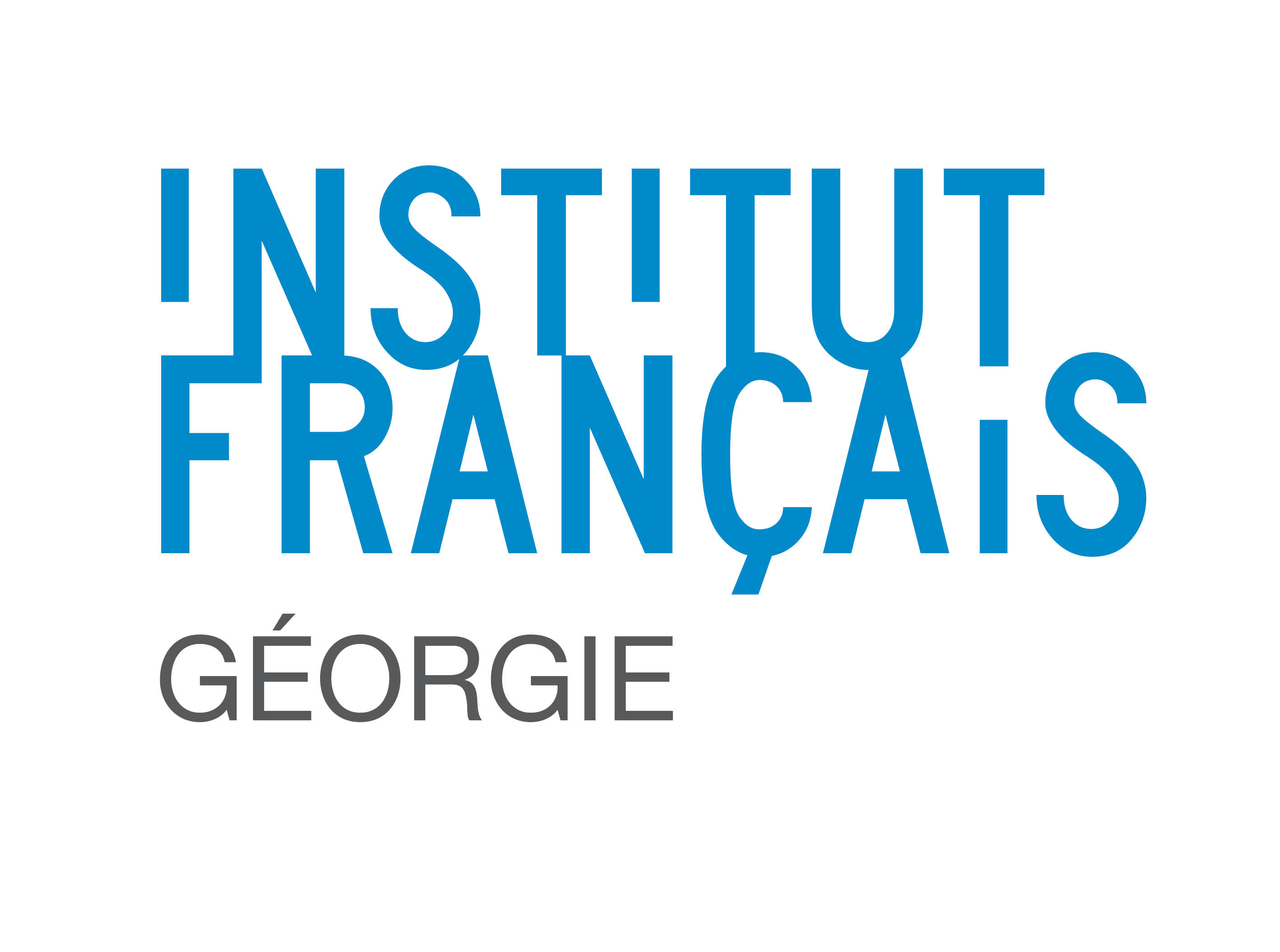


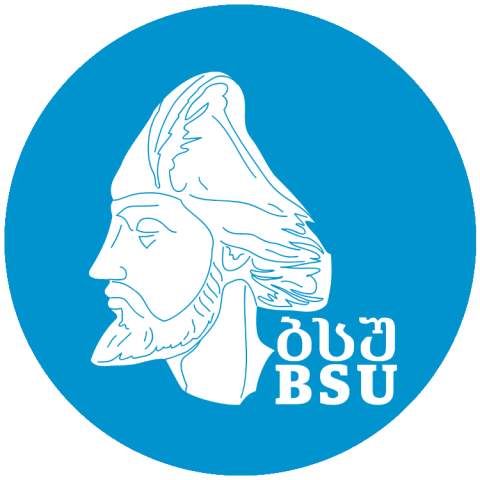

_001.png)

